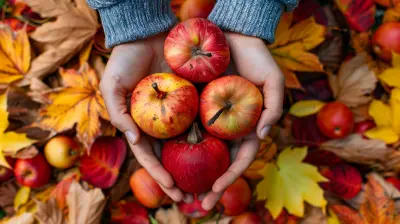The Role of Nutrition in Managing Depression
14 November 2025
Let’s get real for a moment—life can be tough. We’ve all felt down or overwhelmed at some point. But when those heavy feelings linger for weeks, months, or even years, it’s more than just a rough patch. It’s depression, and it has a way of draining joy, motivation, and even the smallest sense of hope. While therapy, medication, and self-care are key players in the battle against depression, there’s one underrated fighter that often flies under the radar—nutrition.
Yes, what you eat matters. A lot more than you might think. So, grab a cup of tea (maybe swap that cookie for a banana), and let’s talk about how the food on your plate can shape the way you feel emotionally.
How Are Depression and Nutrition Connected?
You might be wondering, “Can changing my diet really help my depression?” Fair question. It's not some magical fix, but nutrition plays a powerful supporting role in your mental well-being. Think of it this way—your brain is a complex machine that needs the right fuel to function. Poor fuel equals poor performance. Feeding it nutrient-rich foods can help keep things balanced upstairs.Your brain heavily relies on neurotransmitters like serotonin, dopamine, and norepinephrine—chemicals that affect your mood, sleep, and emotions. These aren’t created out of thin air. They’re produced using nutrients from the foods you eat. So, nutrients literally build the blocks of your mental stability.
The Gut-Brain Axis: Your Second Brain?
Ever had a “gut feeling” about something? That’s not just superstition—it’s science. Your gut is lined with millions of neurons that talk directly to your brain. This communication highway is called the gut-brain axis.A majority of serotonin, the “feel-good” neurotransmitter, is actually produced in the gut. So if your gut’s a mess (thank you, ultra-processed junk food), your mood can suffer, too.
The key takeaway? Healthy gut, happier mind.
Nutrients That Help Manage Depression
So what should you actually eat to support your mental health? Let’s break down the top nutrients that have been shown to make a difference.1. Omega-3 Fatty Acids
You’ve probably heard that fish is “brain food,” and it’s true. Omega-3 fatty acids, especially EPA and DHA found in fatty fish like salmon and mackerel, reduce inflammation and support brain health.Studies suggest that people with depression often have lower levels of omega-3s. Adding more to your diet might help improve mood and cognitive function.
Natural sources:
- Salmon
- Mackerel
- Chia seeds
- Flaxseeds
- Walnuts
2. B Vitamins (Especially B6, B9, and B12)
B vitamins are like the behind-the-scenes crew at a concert—unseen, but without them, the show doesn't go on.They help produce neurotransmitters and regulate your mood. Low levels of B12 and folate (aka B9) are linked to increased risk of depression.
Natural sources:
- Leafy greens (spinach, kale)
- Eggs
- Poultry
- Legumes
- Whole grains
3. Vitamin D
Sunshine vitamin, anyone? There’s a reason people tend to feel lower during the darker winter months—low vitamin D.Vitamin D helps regulate mood and ward off depressive symptoms. If you’re not getting enough sun or you live in a cloudy area, a deficiency could be dragging down your mood.
Natural sources:
- Sun exposure (15–30 minutes a day)
- Fatty fish
- Fortified milk and cereals
- Egg yolks
4. Magnesium
Magnesium is the chill pill of the mineral world. It helps calm the nervous system and is involved in over 300 biochemical reactions in the body, including mood regulation.Low magnesium is linked to higher rates of depression and anxiety.
Natural sources:
- Nuts and seeds
- Whole grains
- Dark chocolate 🎉
- Leafy greens
5. Zinc
This little mineral might not get the spotlight often, but it plays a big part in brain health. Zinc helps regulate neurotransmitter function and supports the immune system.Research shows that people with depression often have lower zinc levels.
Natural sources:
- Oysters
- Beef
- Pumpkin seeds
- Cashews
Sugar, Caffeine, and Highly Processed Foods—Mood Wreckers?
Now, let’s not just talk about what to eat—we also need to have a serious chat about what to avoid.Added Sugars
That sugar high comes with a brutal crash. Yes, that chocolate donut gives you a quick hit of dopamine, but it's short-lived. Excess sugar increases inflammation and messes with your insulin levels, which can leave you feeling irritable, tired, and moody.Caffeine Overload
A cup of coffee in the morning? Sure. Ten cups by 2 p.m.? Not so much. Too much caffeine can mess with your sleep and increase anxiety—a serious combo if you're already struggling with depression.Ultra-Processed Foods
Think chips, sodas, frozen meals, and anything labeled “low-fat” but packed with chemicals. These foods are often stripped of nutrients and packed with additives, preservatives, and cheap oils that do nothing good for your brain.How to Eat for Better Mental Health: A Simple Approach
No, you don’t need to turn into a gourmet chef or go vegan tomorrow. What you need is balance and consistency. Here’s how to start:Eat the Rainbow
Colorful fruits and vegetables aren't just pretty—they’re packed with antioxidants and nutrients that protect your brain and cells.Focus on Whole Foods
Choose real foods—things with ingredient lists you can pronounce. The fewer the better.Stay Hydrated
Your brain is 75% water. Even mild dehydration can affect mood and concentration. So sip that H2O throughout the day.Don't Skip Meals
Low blood sugar can mimic or exaggerate depression symptoms. Keep your blood sugar stable by eating regular, balanced meals.Can Nutrition Replace Medication or Therapy?
Let’s be clear—while nutrition is a powerful tool, it’s not a cure-all. Depression is complex. For some, diet change might significantly lift the fog. For others, it’s one piece of a larger puzzle that includes therapy, medication, sleep, exercise, and social support.Think of it this way: food won’t fix everything, but it can definitely make everything else work better.
Real Talk: Starting Your Nutrition Journey
Ready to start eating for your mental well-being? You don’t have to overhaul your entire kitchen overnight. Small changes add up. Here are some easy first steps:- Add a fistful of greens to one meal per day.
- Swap soda for sparkling water.
- Replace chips with nuts for a snack.
- Take a walk in the sun to boost vitamin D.
- Try a new colorful veggie each week.
And most importantly—don’t pressure yourself to be perfect. This isn’t about restriction. It’s about nourishment and showing up for yourself in a whole new way.
The Bottom Line
Managing depression is tough, but you’re tougher. Nutrition isn’t a magic fix, but it can absolutely be part of your recovery toolkit. By choosing foods that feed your brain and stabilize your mood, you’re giving yourself a fighting chance to feel better—one bite at a time.So go ahead, build your plate like it’s medicine for your mind. Because, honestly, it is.
all images in this post were generated using AI tools
Category:
DepressionAuthor:

Jenna Richardson
Discussion
rate this article
1 comments
Aria Bell
This article raises intriguing points about the connection between nutrition and mental health. I wonder how specific nutrients influence mood regulation and if dietary changes can serve as a complementary approach in depression treatment. Insightful read!
November 18, 2025 at 5:24 AM

Jenna Richardson
Thank you for your thoughtful comment! Indeed, specific nutrients can impact mood regulation, and dietary changes may offer valuable support in treating depression. I'm glad you found the article insightful!


